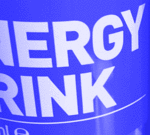
Such supplements are now regulated under the Dietary Supplement Health and Education Act (DSHEA) 1994, Euromonitor International consumer health analyst Chris Schmidt said, noting that supplements may not be “represented as a conventional food”, but did not define ‘represented’.
Schmidt said that a lack of transparency over labeling and limited consumer understanding (versus normal beverages) had led to Senator Dick Durbin’s letter to the FDA in April, demanding regulatory action to tackle energy drink health concerns.
The FDA replied to Durbin in August, stating that it planned to publish guidance in the near future. The stakes remain high, Schmidt noted, since tonics and bottled nutritive drinks (including energy shots and similar liquid dietary supplements) are expected to be worth $2.1bn in the US by 2014.
‘Blurring of the lines’
Nonetheless, a welter of launches could lead to “more blurring of the lines, more confusion and, possibly, more adverse effects from over usage,” Schmidt warned.
Asked how tough he believed the FDA’s guidance would be, Schmidt told BeverageDaily.com: “It’s hard to tell how tough the standards might be. The FDA released draft guidance in 2009 that seems to have fairly clear wording on what the agency looks at when determining a supplement/beverage.
“However, the agency hasn’t seemed to push back too hard against companies using the ‘dietary supplement’ tag on products that seem to clearly be represented as beverages, on account of volume, brand name, etc.”
“If I had to bet, I would think they’ll be somewhere close to the [December 2009] draft guidance, i.e. murky enough to allow the FDA a lot of room for interpretation.”
As such, it is unclear how problematic this could prove for interesting new ingredients (hoodia, for instance, appeared in an energy drink this week), since the FDA pre-market review of novel food additives (or alternatively GRAS status for an ingredient) now only applies to standard beverages.
“I don’t personally think that the FDA will crack down too hard on these products [energy drinks]. Another thing to keep in mind: as the upcoming sequestrations stand now, the FDA stands to lose quite a bit of funding, which could hamper their ability to police the industry,” Schmidt said.
Future formulations…
But since energy drinks had made market mileage from, for instance, novel botanicals (as well as higher caffeine levels than standard ‘beverages’) did Schmidt believe the precise formulations were important for core consumers, and could it threaten the industry if the rules were tightened up?
“I think the formulations are important, to the extent that they have massive amount of energy (caffeine, guarana, taurine, etc.),” Schmidt said, before adding that he didn’t believe the average core energy consumer really knew what was in a given can.
If the FDA reclassified energy drinks as beverages, which could not therefore exceed soda caffeine limits, Schmidt said, this could potentially alienate core consumers, “as they would almost certainly find the products much less effective at providing a jolt of energy and concentration”.
“That could potentially be very bad for the energy drinks industry. However, I don’t see that happening, given the FDA’s recent response to Senator Durbin’s inquiry,” he added.
In this response, the FDA stated that it was, Schmidt said, “basically unconcerned about the level of caffeine consumption in the country, in general, and through energy drinks in particular”.





